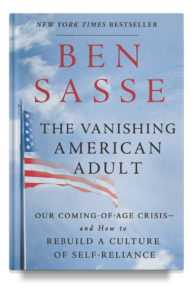Cheaper, faster, more flexible – what’s not to like?
In 2016, Citizens Bank released the results of a survey it had conducted on recent college graduates on the topic of student debt. Among their many eye-opening findings was that 36% of graduates – more than a third – said they would have rethought their decision to go to college if they had understood the full costs of attending before they started. This is more than just a reflection on runaway tuition costs; it’s an indicator that students and society at large are questioning the overall value of a college degree.
Student Loan Hero estimates that the average student loan debt for the class of 2017 was nearly $40,000 and the New York Federal Reserve found that a full one-third of college graduates work in a job that doesn’t require a college degree, including 44% of college graduates aged 22-27. The math just doesn’t add up. For a college education to make sense, it needs to be both more affordable and consistently able to deliver entrée into the professional world.
To get at the underlying problem of value associated with a college education, postsecondary education reform needs to address issues of cost and quality. Massive online open courses (MOOCs) offer great potential in this area. MOOCs are free or low-cost courses delivered online that are often developed by, and/or originally delivered at elite colleges and universities throughout the country. Nonprofits and private sector companies have also developed courses they offer online. Presently, while some MOOCs may offer certificates for completing courses in a concentration, most courses are taken without credit and are not eligible to be put towards a degree award since they are not affiliated with a degree-granting program or institution. (This makes MOOCs different than online degree-granting programs.) But think of the potential. These are, by and large, courses already offered at high quality institutions for credit, so is it so hard to imagine a solution that would enable students taking these courses independently to earn credit?
Arizona State University (ASU) is one institution thinking of ways to take advantage of MOOCs to drive down the costs of a college education while still maintaining a high degree of quality. In 2015, ASU introduced the Global Freshman Academy in partnership with edX, one of the largest providers of MOOCs, to give students an opportunity to earn college credits at a minimal cost. The goal of the program is to enable students to enter college with up to a year’s worth of credits to save a year’s worth of tuition, room, and board. Students complete courses online (and can even complete them while in high school) and then ASU provides that student with a transcript so they can transfer their credits to a degree-granting institution of their choice. Courses are free, however there are small administrative fees to verify the student’s identity and to earn credit for a course. This program can save individual students tens of thousands of dollars.
While Arizona State University is one of the first institutions to take advantage of MOOCs through a partnership with an online course provider, the widespread availability and low cost of MOOCs offer tremendous potential for growth in other areas. It’s easy to imagine a future in which an accrediting agency is willing to grant degrees to students for completing collections of courses or for universities to figure out a way to grant credits for individual courses at a lower price point. It’s also not far-fetched to imagine companies developing their own curricula for students they seek to hire, to ensure their employees have all the knowledge and skills necessary to be successful at their jobs, rather than just hoping that a degree will have prepared them. In this way, MOOCs not only offer the potential to lower college costs, but to offer individualized learning plans and the attainment of specific skills for specific jobs and careers. In an era in which individuals will have to change jobs and industries multiple times to keep up with our rapidly evolving economy, this type of flexible educational option offers to be among the most valuable models out there.
There are still going to be millions of students out there that want the “traditional” college experience. But for those looking for any way to lessen their debt load or for those that can’t attend a traditional college because they have children or need to work full time, MOOCs offer tremendous potential to offer value and flexibility. The courses are already out there and offered on multiple sites. It’s just a matter of time and creativity to figure out how to translate those courses to credits.

 A101 Team
A101 Team 